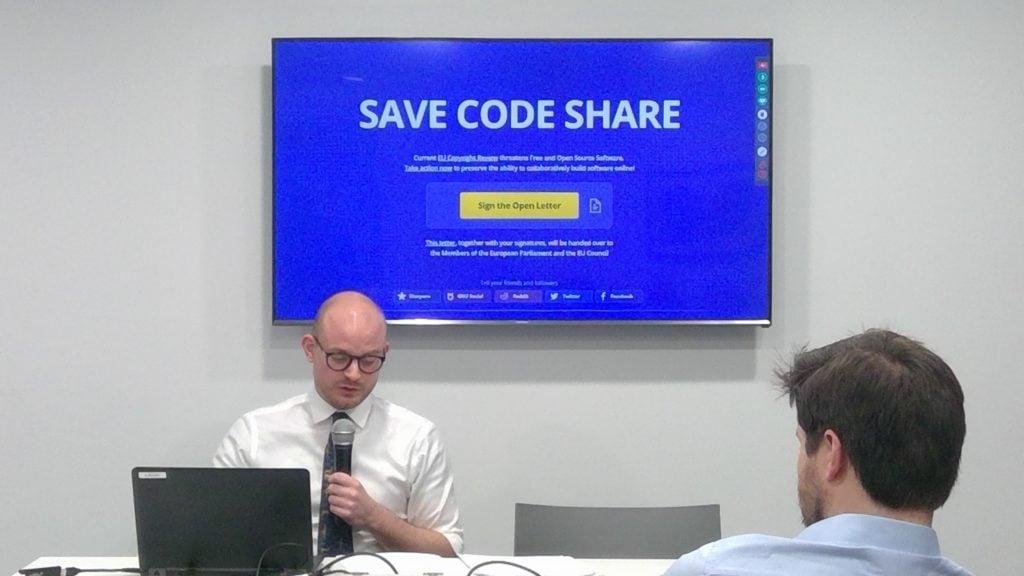We need to change the way we advocate for Open
For the last year or so, Open Source educational and advocacy work by our think tank, OpenForum Europe, has been framed by a key question: “Why did Open Source Software development end up as an unintended casualty in the original proposal of the EU’s Copyright Directive?”
In a time when the digital transformation is at the heart of many policy discussions in Brussels, and when Open Source-dependent technology such as IoT, Cloud, blockchain and supercomputers are hot topics, no one involved in drafting the legislation thought of software development. In short, the platforms and repositories used by developers to drive the digital transformation through the collaborative development of code were forgotten.
Consequently, as the platforms fell into the scope of the Copyright Directive’s filtering obligations, they ran the risk of being regulated out of practical existence in the EU, or at least their users would experience a very negative cooling effect on innovation.

In response to this regulatory risk, OpenForum Europe and the Free Software Foundation Europe started the SaveCodeshare.eu campaign. In the end we were successful in excluding software platforms from the final law. That said (and there is a lot to say about the process of getting there and the many other consequences of the Copyright Directive as a whole) our main takeaway was the grim realisation that Open Source software was overlooked, despite software being largely regulated by copyright law.
On the one hand, this says something about knowledge gaps that exist among policy makers. But on the other hand, it also says something about the state of Open Source advocacy in Europe. Advocacy has not followed the times and is way behind reflecting the reality of the role and position of Open Source in everything digital.
Open Source advocacy is still reactive. Communities of activists and advocates should (perhaps must) build the capacity to be proactive.
The need for a maturing of Open Source representation in politics goes beyond simply not being overlooked when drafting digitally relevant legislation. In our view, with Open Source having gone mainstream, there are new risks and opportunities arising. That means that the political conversation around Open Source has to go beyond what it has focused on in the past, to how to become acknowledged as being of strategic importance for Europe’s digital future.
To be part of that conversation, the Open Source ecosystem needs to build the capacity to become trusted partners of governments and public authorities, in order to capture the big opportunities.
We believe that to make that happen, to not just fend off regulatory risk, but also capture the opportunities that are out there, all stakeholders in the ecosystem need to step up. From the developers, Open Source vendors to the large IT and industrial companies that develop and/or depend on Open Source’s innovative benefits, there needs to be more effort, energy and resources spent on political representation and educational efforts.
We have to at least take on the collective responsibility to make sure that Open Source Software never becomes an unintended casualty again. For those stakeholders that look further than defensive efforts, we need to be part of the conversations around the digitization of all sectors of our society. It is also our responsibility to do our part in ensuring that the much talked about Digital Sovereignty describes a digital reality that is neither locked-in to a small group of monopolistic vendors or for that matter, a chauvinist approach of a Europe closed for global collaboration.
Europe’s digital future should be based on Open.
